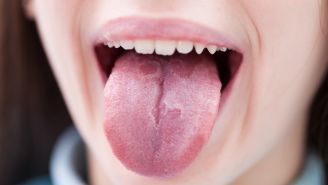Updated on August 15, 2022.
Dental emergencies can happen anytime and anywhere. Here’s how to deal with four of the most common mishaps you may confront.
Emergency: Chipped or cracked tooth
Start by rinsing out your mouth with warm water. Use a cold compress to reduce any swelling in the mouth. You can take over-the-counter pain medication, such as ibuprofen or acetaminophen, if your personal health conditions allow.
What to do about a chipped tooth: Find the piece that has chipped off, if possible. Put the piece in a plastic bag with a few drops of water or wrap it in wet gauze to keep it moist. See a dentist immediately to repair the tooth. If it is a small chip, it may not be possible to find the piece or reattach it.
What to do about a cracked tooth: Visit a dentist as soon as possible. Avoid chewing on anything hard or sticky. If it feels painful to eat food, breathe through your mouth, or drink cold fluid, try biting on clean, moistened gauze. However, do not use a topical oral pain medication or put aspirin on the affected area.
Emergency: Painful toothache
Rinse your mouth with warm water. Use floss and gently try to remove debris that may be stuck between your teeth. Never poke your aching tooth with anything sharp or place aspirin directly on the painful area. If the pain continues, gets worse, or you have a fever, call your dentist right away—this could be a sign of a serious infection.
Emergency: Total tooth knock-out
Losing a tooth can be a traumatic experience for an adult or child. If a permanent tooth is knocked out, your first step is to call a dentist for an immediate appointment. It’s necessary to act as quickly as possible, within 30 minutes, if you want to save the tooth.
Never touch the root of the tooth—only handle it by the crown, the top part of the tooth you can usually see. If the tooth is dirty, gently wash with water only. Do not dry or wrap the tooth. Instead, you can try to reposition the tooth back into its socket. Hold the tooth at the crown and gently place it back into the socket. If it doesn’t hurt, you can place damp gauze between your upper and lower teeth and gently bite down to keep the tooth in place. If this is not an option, try keeping the tooth between your cheek and gums. If it takes longer than anticipated to see a dentist or the tooth can’t be placed back into the mouth, keep the tooth moist by placing it in milk, saliva, or saline.
If your child loses one of their four front baby teeth, contact a pediatric dentist. The provider may want to ensure the permanent front teeth and surrounding area are okay.
Emergency: Damaged braces
For a loose or broken braces bracket, hold it in place with orthodontic wax, which is inexpensive and easily found at most drugstores. If the bracket has fallen off completely, do not throw it away. Keep it and notify your orthodontist of the issue so you can set up an appointment as soon as possible.
If a wire from braces is dislodged or poking your mouth, use orthodontic wax to prevent discomfort and hold in place until you can see the orthodontist. You may have to carefully move the wire with tweezers or clip it with sterile nail clippers, as close as possible to your teeth, before covering the rough edge with wax.
Be careful not to touch your teeth or gums with the nail clippers if you try this method. Securely hold the wire being clipped with your other hand to prevent accidentally swallowing it.
When you shouldn’t wait for treatment
It’s important to remember that delaying treatment of a dental emergency can cause serious complications, so you may need to find a nearby dentist with extended hours.
For dental emergencies, it’s usually better to find a dentist to treat you quickly. While most emergency rooms (ER) or urgent care centers can provide temporary pain relief, they are often not equipped to treat dental issues. Plus, a trip to the ER or urgent care could be costly and time-consuming.
If you have any doubts about whether the situation is a true emergency—or if you experience any of the following symptoms—call 911 or get to the nearest ER:
- Trouble breathing, even if due to swelling
- Heavy bleeding
- Severe pain
- High fever that medicine doesn’t reduce
- Trauma to the face, such as cuts inside or around the mouth or a possible broken jaw
Before you depart
If you’re planning an extended vacation or traveling outside of the country, it’s a good idea to see your dentist about any lingering issues before leaving. This is especially important if there is a language barrier at your destination or if you will be in a remote area. Be proactive to prevent some of these problems before they happen.







